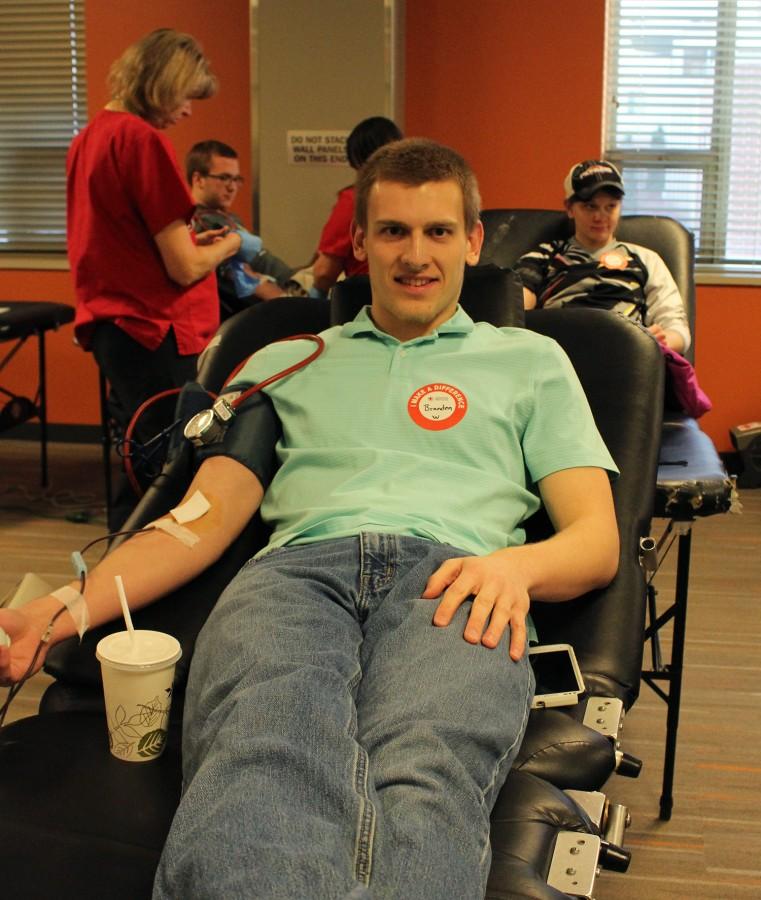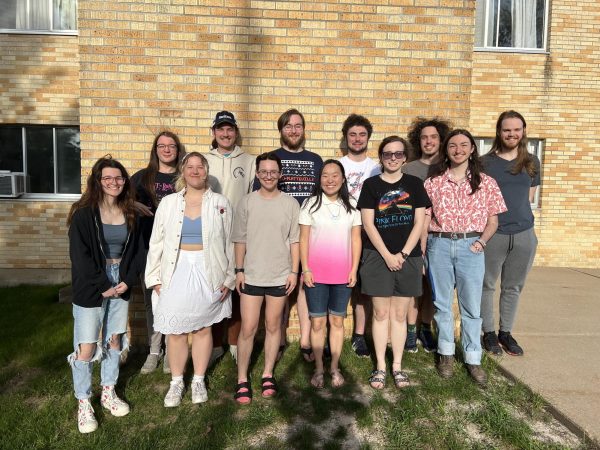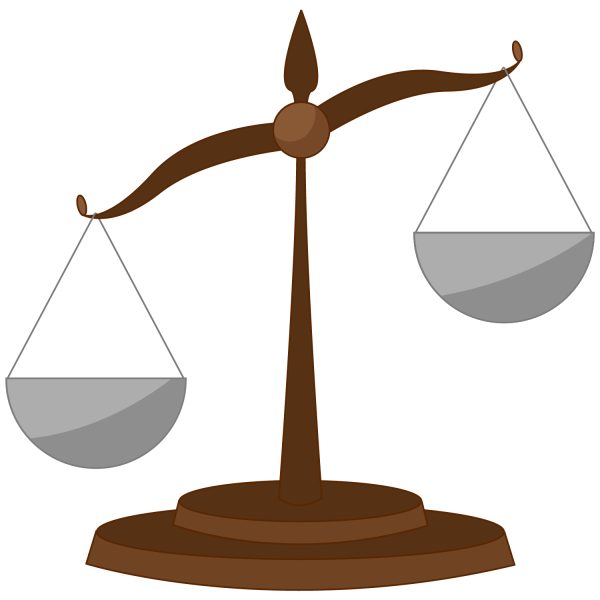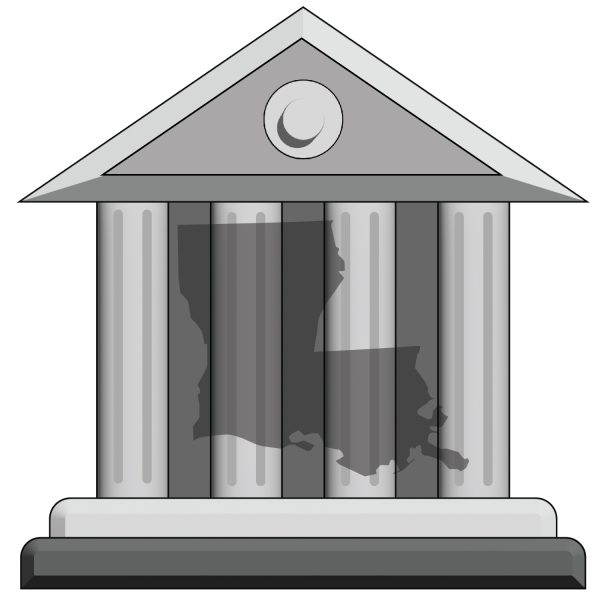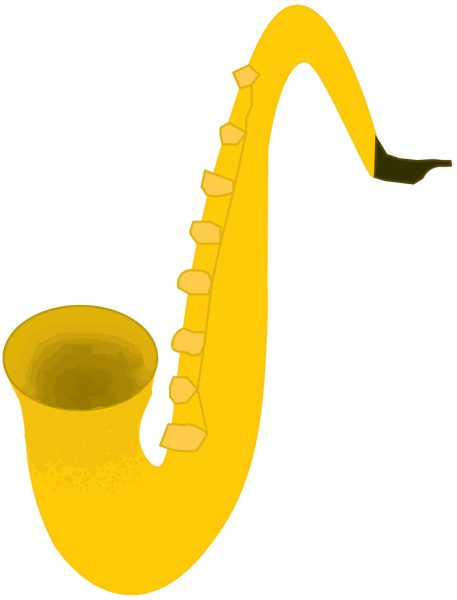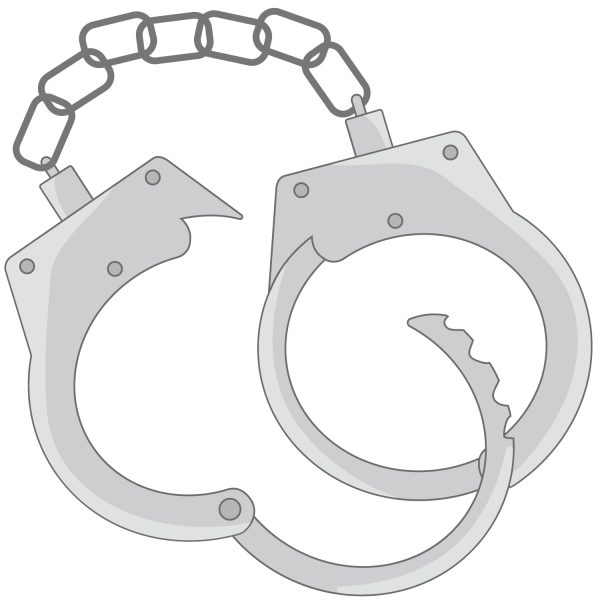Email raises concern about blood donation discrimination
Extra credit to students donating blood leads to questions in the LGBT community
Brandon Breitsprecher, junior civil engineering major, donated blood on Thursday, Feb. 25. According to redcrossblood.org donating one pint of blood can help save up to three lives.
The annual blood drive at the University of Wisconsin-Platteville has drawn scrutiny from the lesbian, gay, bisexual and transgender community after an email was sent to faculty asking professors to consider offering extra credit to students who donate or volunteer. The spring blood drive, hosted by the Residence Hall Association, National Residence Hall Honorary and Delta Sigma Chapters took place in Bridgeway Commons, Feb. 25-27.
Last year’s blood drive reached over 100 additional students due to extra credit opportunities. In order to increase the number of donors this year, NRHH asked professors to either mention the event or provide extra credit to students who donate or volunteer.
“In the past, Platteville has been one of the largest blood drives in the Midwest and one of the largest university drives in North America. That is something we are very proud of and something that we see routinely from all the students and community members that come through our doors just to volunteer and donate blood,” blood drive volunteer and senior political science major Caleb Goodness said.
Despite the success in donations, a perspective from the LGBT community disagreed with the extra credit opportunities because of discriminatory practices related to students who are unable to donate blood. In this case, the problem was regarding the regulation on gay males. Until December 2015, a man that had sex with another man was banned from being able to donate blood. According to fda.gov, the recommendations now state “Defer for 12 months from the most recent contact a man who has had sex with another man during the past 12 months.”
One openly gay UW-Platteville professor, who was not involved with the blood drive or with those who had concerns with the email, sympathized with the LGBT community on the issue.
“I cannot stress enough that a blood drive is a good thing,” humanities professor Phillip Gordon said. “Nonetheless I just think it’s wise that all professors be at least aware that because of regulations from the American Red Cross and the [Federal Drug Administration], by asking your students to give blood, you are actually exposing them to a type of discrimination that is buried into the way we think about the blood supply and people who are at risk populations.”
Gordon said he believes the FDA and Red Cross minimize the extent to which HIV and AIDS also affect heterosexuals, and that they “still harbor this notion . . . that aids is somehow a gay disease and that’s just problematic. That problem is revealed when a student is told in class you can get extra credit for going and donating blood. Because if that student has sex with other men, maybe he doesn’t want to admit that, at least publically to their teacher.”
One solution proposed by the Red Cross volunteers was the option for students to volunteer if unable to donate blood. The volunteers help students check in, help out in canteen areas, and comfort blood donors.
“My professor offered ten points extra credit to either volunteer or give blood. I feel like it is an incentive to get people to go not so much for the extra credit, but thinking of the bigger picture and helping others,” junior business administration major Aislynn Haseleu said. “People who can’t donate can still give their time to volunteer. There are other ways to help the blood drive, not just by giving blood.”
However, Gordon said that although offering extra credit for volunteering is not something he would discourage, the alternative still does not completely address concerns of the gay community.
“The problem is that teachers are still encouraging students to give blood as if it’s just a natural thing and not blatantly discriminatory,” Gordon said. “I feel like the option of ‘doing something else instead’ is a nice surface gesture but does not address the fundamental discrimination that the extra credit opportunity exposes students to.”




